Mystery Writers of America's Edgars Gala
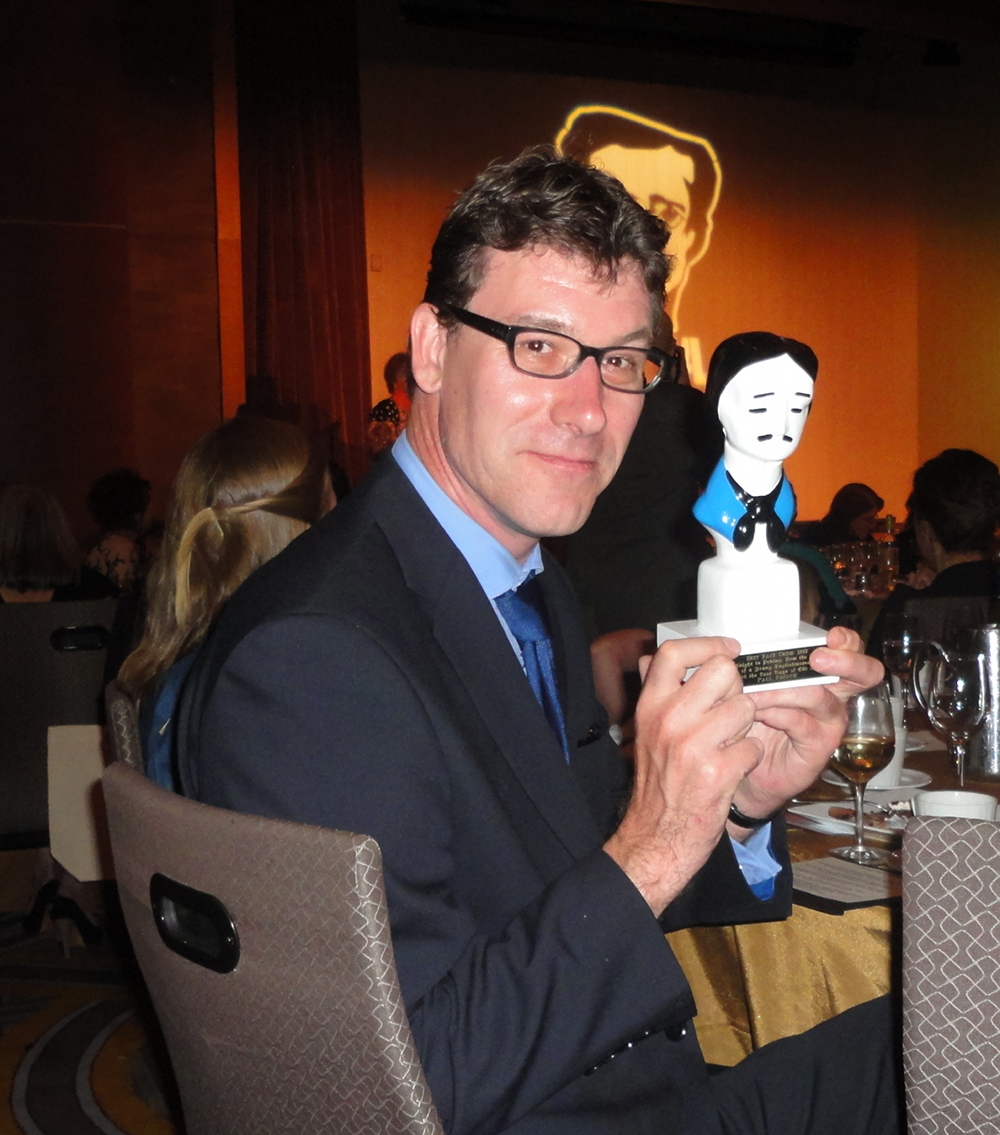 |
|
| Paul French | |
The Mystery Writers of America held its annual Edgars Award banquet at the ballroom of the Grand Hyatt Hotel in Manhattan last night. As Cathy Pickens announced that Paul French had won the "Fact Crime" Edgar for Midnight in Peking (Penguin Books), she noted that he'd come from his home in Shanghai--the longest distance, surely, any of the nominees had traveled to get to the ceremony. "Yes, it was a very long flight," he quipped, "but obviously worth it."
Highlights of the evening included Jack D. Ferraiolo, winner of the Best Juvenile award for The Quick Fix (Amulet/Abrams), thanking his editor and agent, "who, when I approached them with the idea of Lew Archer in middle school, said, 'Yeah, that's a good idea,' " and a stirring speech by Dennis Lehane--whose Live by Night (Morrow) took Best Novel--that paid tribute to the librarians who offered "a light in the darkness for the kids from the wrong side of the tracks" and a special thanks to his hometown: "Everything about me that people love, and everything about me that pisses people off," he declared, "comes from being from Boston."
The founders of Mysterious Galaxy, which has stores in San Diego and Redondo Beach, Calif., received one of two Raven Awards, presented for contributions to the mystery field other than creative writing. Accepting the award alongside Maryelizabeth Hart and Terry Gilman, co-owner Jeff Mariotte thanked the MWA for its support of "20 years of dedication to the shared proposition that books matter." The gala also featured the presentation of two Grand Master awards, to authors Margaret Maron and Ken Follett. Follett reflected on winning his first Edgar more than 30 years ago (for Eye of the Needle), and marveled at the power all great stories have over readers: "If they're hoping it will turn out this way, and fearing it will turn out that way, they're going to turn the page."
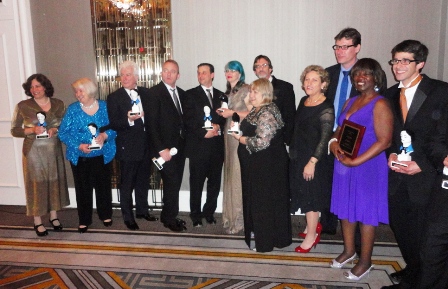
The winners and nominees in all categories can be found at the MWA website. --Ron Hogan





SHELFAWARENESS.1222.S1.BESTADSWEBINAR.gif)
SHELFAWARENESS.1222.T1.BESTADSWEBINAR.gif)
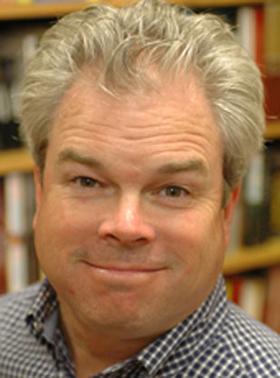 The shop will occupy a 6,500-square-foot space that previously housed a Brooks Brothers store. Neil Van Uum, owner of the Booksellers on Fountain Square and a downtown Cincinnati resident, plans to take a heavily curated approach to inventory selection.
The shop will occupy a 6,500-square-foot space that previously housed a Brooks Brothers store. Neil Van Uum, owner of the Booksellers on Fountain Square and a downtown Cincinnati resident, plans to take a heavily curated approach to inventory selection.
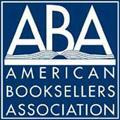 Steve Bercu of BookPeople, Austin, Tex., has been elected to a two-year term as
Steve Bercu of BookPeople, Austin, Tex., has been elected to a two-year term as 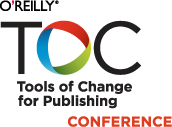 Seven years after its debut, O'Reilly's annual Tools of Change digital publishing conference (and TOC blog)
Seven years after its debut, O'Reilly's annual Tools of Change digital publishing conference (and TOC blog) 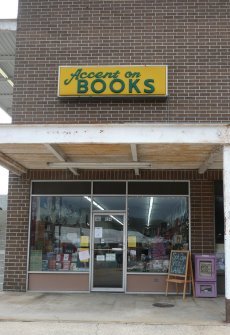 Lewis Sorrells and Patrick Covington, owners of
Lewis Sorrells and Patrick Covington, owners of  Tomorrow is
Tomorrow is 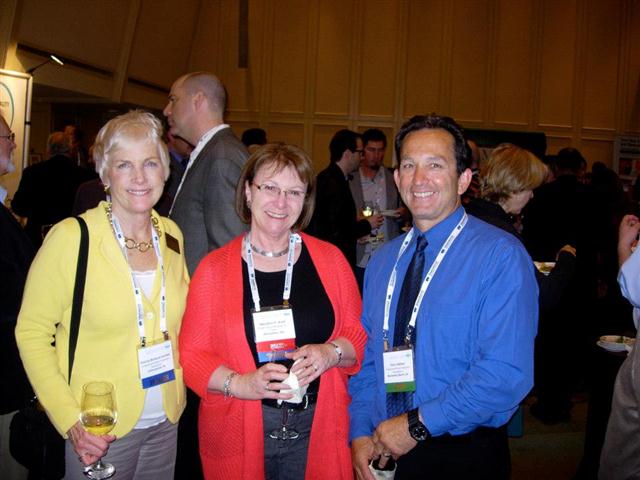 The
The  The
The  The Seminary Co-op Bookstore, Chicago, Ill., which moved late last year to new quarters, is holding a
The Seminary Co-op Bookstore, Chicago, Ill., which moved late last year to new quarters, is holding a  Amulet Books, an imprint of Abrams, just announced the "Wimpy Kid Drives Reading" campaign. Fans of the series will recognize that each of the seven cars correlates to a book in Jeff Kinney's mega-selling Wimpy Kid series. "It kicks into gear this month and burns rubber until the release of Diary of a Wimpy Kid book 8 on November 5, 2013," said Jason Wells, executive director of publicity and marketing.
Amulet Books, an imprint of Abrams, just announced the "Wimpy Kid Drives Reading" campaign. Fans of the series will recognize that each of the seven cars correlates to a book in Jeff Kinney's mega-selling Wimpy Kid series. "It kicks into gear this month and burns rubber until the release of Diary of a Wimpy Kid book 8 on November 5, 2013," said Jason Wells, executive director of publicity and marketing.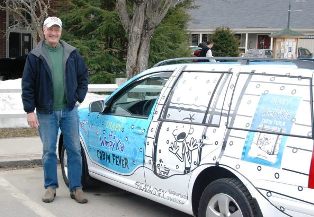 The seven cars, owned and operated by Abrams sales reps and staff, will each cover one of seven regions across the country. Doug Cochrane, of New England Book Sales, stands next to a light blue car representing Cabin Fever. Abrams sent out Wimpy Kid car window cling sheets and character cutout kits to retail stores and libraries nationwide for use in displays. Additional materials are available to bookstores, schools, and public libraries by request via e-mail to wimpykid@abramsbooks.com. A social media campaign encourages those who spy a Wimpy Kid driver to tweet a photo, using the hash tag #readwimpy.
The seven cars, owned and operated by Abrams sales reps and staff, will each cover one of seven regions across the country. Doug Cochrane, of New England Book Sales, stands next to a light blue car representing Cabin Fever. Abrams sent out Wimpy Kid car window cling sheets and character cutout kits to retail stores and libraries nationwide for use in displays. Additional materials are available to bookstores, schools, and public libraries by request via e-mail to wimpykid@abramsbooks.com. A social media campaign encourages those who spy a Wimpy Kid driver to tweet a photo, using the hash tag #readwimpy. Beg: A Radical New Way of Regarding Animals
Beg: A Radical New Way of Regarding Animals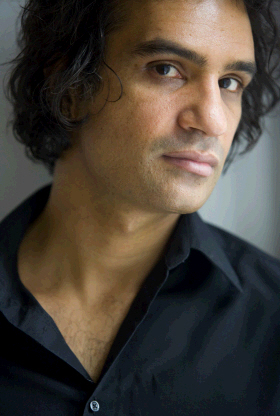
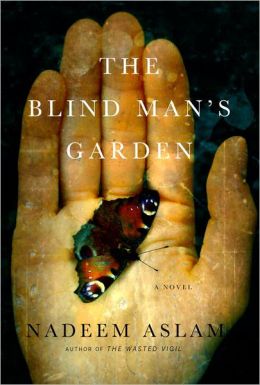 Book you are an evangelist for:
Book you are an evangelist for: 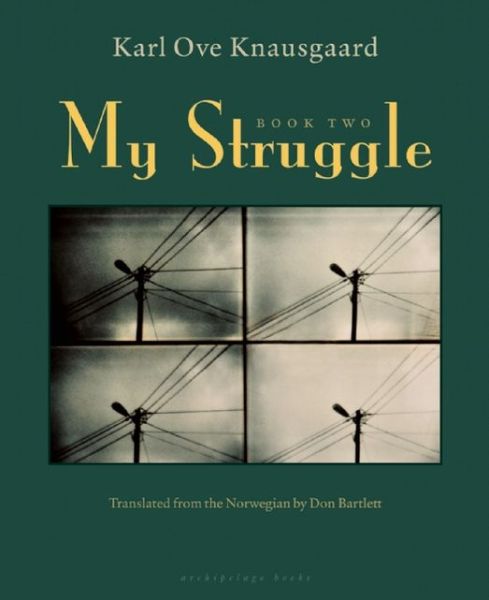 A Man in Love, the second book in Norwegian author Karl Ove Knausgaard's six-volume autobiographical novel My Struggle, stands on its own as a painfully honest examination of the emotional fluctuations in a marriage filled with the normal, everyday squabbles and joys of a couple with three kids. Knausgaard delights in all the little disappointments and frustrations of reality. His specialty is chronicling the ordinary moments we don't think of as important in words so exact the images seem photo-real.
A Man in Love, the second book in Norwegian author Karl Ove Knausgaard's six-volume autobiographical novel My Struggle, stands on its own as a painfully honest examination of the emotional fluctuations in a marriage filled with the normal, everyday squabbles and joys of a couple with three kids. Knausgaard delights in all the little disappointments and frustrations of reality. His specialty is chronicling the ordinary moments we don't think of as important in words so exact the images seem photo-real.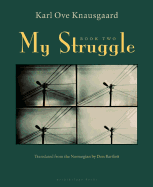
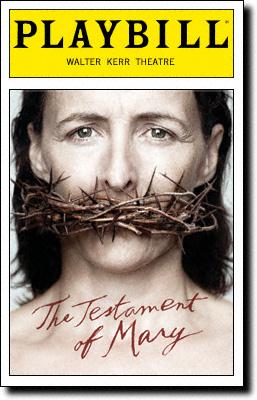 All giving voice to the written word, and to the complex silence of reading. "As a writer of fiction, it is my job to work through silence, to enter the minds of my characters, to create voices for them, to give them a life that will matter emotionally and intellectually to others," Colm Tóibín writes in an author's note inserted in
All giving voice to the written word, and to the complex silence of reading. "As a writer of fiction, it is my job to work through silence, to enter the minds of my characters, to create voices for them, to give them a life that will matter emotionally and intellectually to others," Colm Tóibín writes in an author's note inserted in 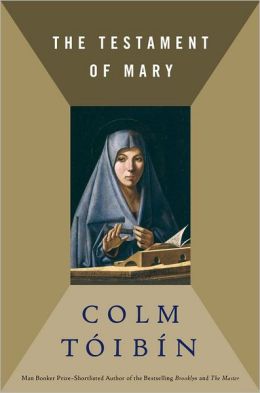 And we are complicit in that story, too, witnesses to her confession as well as traditional portrayals of Mary. Pre-show, the audience is invited on stage to explore the set, with Shaw sitting rigidly inside a glass box, dressed in the colorful robes we recall from depictions of the iconic Madonna in paintings and sculptures.
And we are complicit in that story, too, witnesses to her confession as well as traditional portrayals of Mary. Pre-show, the audience is invited on stage to explore the set, with Shaw sitting rigidly inside a glass box, dressed in the colorful robes we recall from depictions of the iconic Madonna in paintings and sculptures.